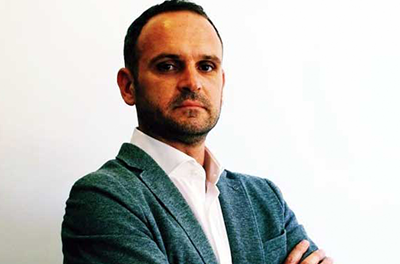On the Frontlines: Threats to Professional Objectivity
Blogs Milaim Abduraimi, CIA, CIPFA Mar 30, 2022

When performing an audit, internal auditors are obliged to take a professional and objective approach. In fact, a mental attitude that is impartial, open-minded, unbiased, and fair is a prerequisite for achieving quality results that add value to the organization. Though an internal auditor may be well-trained professionally, having impaired objectivity can damage the quality of his or her work. When it comes to shortcomings in internal audit judgment, a lack of objectivity is among the main contributing causes.
There are a variety of circumstances or conditions that can threaten internal auditor objectivity, and they can be organizational, social, economic, or cultural.
For instance, an internal auditor may encounter situations where they have a special relationship with the audit client, such as a close friendship or even a family relationship. In this case, objectivity can be jeopardized, even if the auditor performs his or her work diligently and in compliance with The International Professional Practices Framework (IPPF). Likewise, if the outcome of the audit is linked to an organizational bonus or other financial benefit, the internal auditor may be encouraged not to disclose any major problems, legal violations, or fraud that would endanger the organization where he works and from which he is paid.
In organizations that are composed of workers with different nationalities, the auditor may encounter racial, gender, or cultural prejudice from the audit client, or the internal auditor himself may even hold some unconscious bias toward the audited party. There is a risk that an internal auditor may be prevented from acting objectively if they feel threatened by the audited party, whether the threat is actual or perceived. Moreover, if internal auditors play roles that cross the three lines, this can expose them to conditions that may threaten their objectivity.
Preventive measures can ensure these threats are not realized. Recognizing and evaluating their effect on internal auditor objectivity is a basic condition for their management.
Identifying and preventing internal auditor objectivity threats can be accomplished as follows:
Creating the independence of the internal audit activity. The most essential elements involved in ensuring the objectivity of internal audit include the reporting line that the CAE has with the executive management, internal audit's formal and informal relationships with members of the audit committee or board of directors, and policies and procedures regarding the reporting of cases that threaten the objectivity of auditors.
Training of internal auditors. Internal auditors should be regularly trained using the IPPF Code of Ethics and taught how to recognize, identify, and evaluate cases that threaten their objectivity and the effects these cases may have on the quality of their work.
Rotation between internal auditors. Rotation enables auditors who are affected by the threat of objectivity not to have to participate in that audit, with the audit performed by auditors who have no impairment of objectivity. Auditors who are affected by impairment of objectivity can also be temporarily replaced by outsourcing the audit to a third party.
Monitoring and evaluating the internal audit activity. Prevention and identification of the impairment of objectivity can also be done through continuous monitoring and a periodic evaluation of the work of internal auditors by their supervisors.
Reporting cases that threaten the objectivity of the internal auditor. The auditor's greatest responsibility is to disclose any information about their objectivity with the client before the audit is performed. If there are elements that threaten objectivity, auditors must immediately inform the relevant parties so they can be removed or the audit team restructured so that engagement with the client is minimal.


